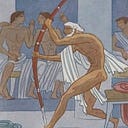THE PROPHECY OF PUBLISHING SUCCESS: CAN WE PREDICT THE NEXT HARRY POTTER?
Why did twelve, twelve different publishers reject the Harry Potter manuscript?
And why did a very small and newly created publishing house take it?
This is the first article in a series exploring the topic. Every week I will publish two.
There are four coordinates that help us answer why Harry Potter was rejected twelve times before an unimportant player took him and changed his fortunes. Let’s study them. And who knows? Maybe you can make a successful prophecy.
The coordinates are:
The publishers…
The readers…
The writer…
Taste…
Let’s think about the first, the editorials.
There are characteristics of publishers that are constant. Questions that those in charge of them ask themselves regularly and normally when reading a manuscript; and there were special accidents in the case of Harry Potter.
Publishers would much rather not take any chances. That doesn’t mean they aren’t afraid to consider new things. But since all publishers, even new and very small ones, are businesses, they do not want to lose their investment and always seek to optimize it. If something has sold well or is selling well in the market, they will prefer it over other options.
In the case of Harry Potter this was a factor against it. At least two editors who rejected the book have been interviewed. No one thinks they have made a mistake, and they present arguments. The novel is of a genre that at the time was not in any way attractive: there were no films or any public figures who were moving the issue and drawing the public’s attention to it. There are thousands, thousands of topics to make novels about and at that time, others were the ones that were attracting the public’s attention. So in effect it was not a mistake to have rejected it because in doing so no bad judgment was made.
Publishers have room to take risks. But that changes a lot from editorial to editorial. From era to era. In times of economic crisis, publishers, like all businesses, will seek to conserve, save, and spend “efficiently” and of course: each publisher has its own definition of “efficient spending.” All publishers have different policies on this topic.
J.K. Rowling did not take this into account. She pitched the manuscript to publishers without taking this factor into account. Years later she thought about taking on an agent. She has stated that she chose her agent because her last name “reminded her of a character that she really liked as a child.” As we can see, this is not risky but borders on the absurd or worse.
Literary agents count. Many publishers have a policy that any manuscript submitted by an author is placed in a file from which the editors or readers take and read… at their own pace, when they remember, when they have time, when there are no more urgent or important things to do. do. It is logical that publishers do that: an agent saves them the work of classifying by genre, putting up an index, etc. One strategic thing that agents do is “speak for the book”: they try to show their strengths to the publisher, and they try to show the side that might interest the publisher the most.
Authors generally don’t do that: they throw out their manuscript but don’t “speak for” their manuscript.
Each publisher is unique. Each publisher has its goals, its objectives, its traumas, its allies, its enemies, its threats… its history. And they may be more or less aware of all this. Many times observers outside the editorial are more perceptive in seeing all this.
In his words, J.K. Rowling states that she never, never considered that. She sent the manuscript twelve times to twelve publishers without being able to know if her work matched in any way with the interests of this or that or that publisher.
Gender matters. The topic matters. It matters if it is a very long or very short novel, if it is an anthology or a novel, etc. Some publishers state that they rejected Harry Potter because the topic: of children studying magic could be controversial. Dangerous. An abused orphan child, is the same. How is the public going to respond to that? How are specific actors going to respond to that? On the other hand, it has been pointed out that the rejection of Harry Potter is explained because Rowling misclassified it: she presented her novel as “for children,” when many writers clearly see that it is not for children but “juvenile literature.”
This was where J.K. Rowling got it right and where the publishers got it wrong. She felt or had perceived that the topic was interesting. The story that it was the daughter of her literary agent who read the first chapters that Rowling gave her and that it was that girl who jumped on her father asking him for more of the novel, asking him at breakfast and at lunch and in the dinner that followed the story and how it ended.
Publishers consider demographics. For clear reasons.
Rowling never took that into account. When it came to presenting her manuscript, that worked against her.
Finally, there are old-fashioned editorials. That is to say, the business culture of each publisher weighs and is sometimes decisive. This is easier to perceive in very small or family-run publishers, but large transnationals also have their “character.” More clearly expressed, his quirks.
Rowling knew nothing of that, nor did she consider it.
So, on the topic of editorial companies, Rowling was not playing well at all.
If this were the only element, the prophecy to be fulfilled is that Harry Potter was not going to live even once.
